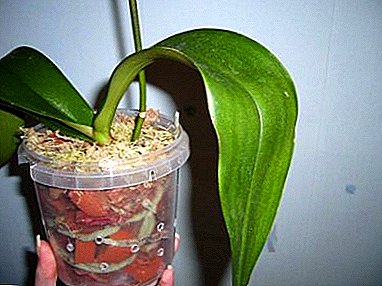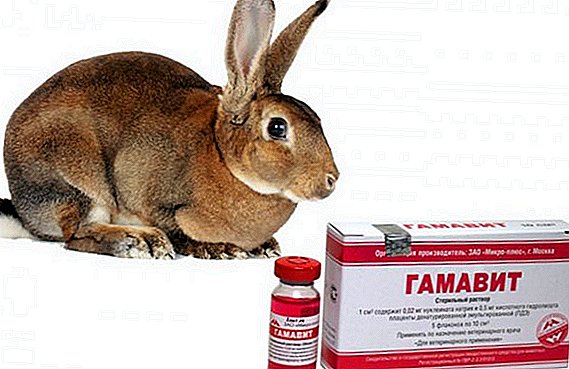
Cherry tomatoes are loved by gardeners, and especially housewives involved in home canning. For the first time in Russia, as a commodity, they got from israel, their import continues today.
But our Russian gardeners are now increasingly growing these wonderful tomatoes in greenhouses, in the open field or just on the balcony.
Cherry varieties for growing at their summer cottage and their photos
For cultivation in open ground or in the greenhouse bred tall, not afraid of temperature fluctuations varieties and hybrids of cherry tomatoes. These are most often indeterminant species, growing to 2.5-3 m.
Most Popular:
- Barberry - in the hand can ripen up to 50 fruits;
- Gold - resistant to major diseases, high-yielding;
- "Dance with Smurfs" - has a purple color;
- "Cyrus F1" - very early ripe hybrid, fruits of bright orange color;
- "Orange grapes" - the fruit is saturated with carotene, has an orange color, can be stored fresh for a long time.
There are a lot of varieties for greenhouses and open ground, everyone will find among them one that suits his taste.
You can visually get acquainted with some of the varieties listed above in the photo below:



Planting and growing seedlings
The process of growing first seedlings, and then adult plants is not much different from the care of ordinary tomatoes. Small nuances concerning the cherry, do not complicate this process at all.
When to plant seedlings?
Sow seeds on seedlings begin in the beginning of April, in open ground, it will land in the middle or at the end of May.
Substrate preparation
The quality of the land in which the seedlings are grown, largely depends on the yield of an adult plant. The soil should be loose and fertile.. Well fit a mixture of humus, sawdust and peat. The soil is fertilized (can be mixed with manure) and disinfected with a solution of potassium permanganate heated to 70 °. After that, she defended two or three days.
Planting seedlings
Capacity for seedlings should have the height of the side is not less than 15 cmto have a place to form the root system. The prepared, well-moistened soil is poured at the bottom. In it grooves are made, in which seeds are planted to a depth of 3 cm. If seeds of different varieties are planted, a separate container is used for each.
Illumination and temperature
 Seedlings should be kept in a bright place and be sure to extend the light day for it at least until 14 o'clock. For germinating seeds need quite high temperature - up to 30 °.
Seedlings should be kept in a bright place and be sure to extend the light day for it at least until 14 o'clock. For germinating seeds need quite high temperature - up to 30 °.
Therefore, a box or sowing container should be placed closer to the heating devices until the seeds hatch. From above the hotbed is covered with a film or glass.
Further cultivation of seedlings can take place at a temperature of 20-24 °. If she falls up to 16 ° and below, the fruits may not tangle.
Dive
Cherry tomato dive necessarily. This kind does not tolerate crowding and therefore the bushes of seedlings need to be planted in separate pots. A pick is needed in order to trim the roots. They shorten by about a third. This operation allows the bush to grow a powerful root system.
Cherry seedlings dive when there are 4-6 full leaves on the sprout. Care, both before the dive and after it, consists in regular watering, feeding every 10 days and loosening the soil.
Strong quality seedlings must have a thick stem up to 30 cm and at least 8 leaves. Its age at the time of disembarkation should be 60-65 days.
Landing in the ground
 In the middle lane and in the northern regions of the cherry, it is best to grow in greenhouses so that the ambient temperature does not fall below 16 °. Before planting, the seedlings are quenched for one to two weeks.
In the middle lane and in the northern regions of the cherry, it is best to grow in greenhouses so that the ambient temperature does not fall below 16 °. Before planting, the seedlings are quenched for one to two weeks.
Boxes with seedlings for the day are exposed to the street. The day before landing, it stops watering.
Before planting seedlings, the beds must be prepared. If the groundwater is close to the surface of the soil, it is better to raise the bed, so that there is no excessive moisture.
How to plant?
Soil is loosened for good air and water permeability. In the ground make holes at least 10 cm deep. Cherry tomatoes can not be planted closer than 50 cm from each other. The greater the distance between the bushes, the better the plant will bear fruit.
You can clearly see how the tomato is planting, can be on the video below:
Care
For tall varieties vertical support required, which is tied to the whip as it grows. Masking is done if many additional shoots grow. Some varieties need it without fail.
When staving do not confuse a real leaf with a process. If you cut the sheets, it will affect the fruiting bush.
Like all tomatoes, cherry love airing, it helps to pollinate and prevents undesirable microorganisms from stagnating to moist air.
Watering and feeding
 Cherry tomatoes love daily moderate watering. If this is not done, brown cracks will appear on the fruit. As a result of over-irrigation, they will become watery and may also crack. Watering is done with warm water.
Cherry tomatoes love daily moderate watering. If this is not done, brown cracks will appear on the fruit. As a result of over-irrigation, they will become watery and may also crack. Watering is done with warm water.
Tomatoes love complex mineral dressing containing not only phosphorus and potassium, but also modibden, zinc, iron, magran, selenium and cobalt. It is difficult to make such a mixture on your own.
On sale there is a wide range of such fertilizers. The most commonly used is Agricola and Effecton. Experts recommend a mixture Kemiraas the most balanced in composition.
Tomatoes feed once a week after transplanting to the ground. In the period of formation of the ovaries, an additional feed of ammonium nitrate is added with the addition of wood ash.
If you see white areas of pulp in the middle of a ripe fruit, it means that the tomatoes lack nutrition. There is a need feed them with potassium sulfate.
Top dressing necessarily combined with watering.
Work with soil
Soil under cherry bushes preferably mulch sawdust, straw, manure or agropolotnom. This will prevent the contact of the fruit with the ground and help to avoid rotting and infection of fungal diseases. In addition, it will prevent the soil from overheating.
Often gardeners use simple techniques to prevent diseases of tomatoes. They are grown in metal buckets, which do not like different pests. Buckets can be dug into the ground, or just put on the garden or in the greenhouse.
Ripening and harvesting
 The ripening time of cherry tomatoes depends on the ripeness of the variety. They are able to bear fruit until the temperature drops below 8 °. Usually the fruits are removed until the end of September.
The ripening time of cherry tomatoes depends on the ripeness of the variety. They are able to bear fruit until the temperature drops below 8 °. Usually the fruits are removed until the end of September.
Cherries are loved by gardeners for the fact that their fruits ripen almost simultaneously and have the same size. It is not recommended to remove tomatoes from the brush until the last one ripens.. The most convenient way is to collect tomatoes with brushes.
Using
Previously, in restaurants, cherry tomatoes were used exclusively to decorate dishes. Today, no one disputes the benefits and excellent taste of these tomatoes. The content of nutrients makes cherry dietary product. It still serves as decoration and an integral part of many salads and main courses. Very tasty in whole canning.












